NTHU Integrates Generative AI Teaching into the Humanities and Social Sciences
2024.02.29

NTHU integrates generative AI into humanities and social science courses.
National Tsing Hua University (NTHU) in Taiwan will integrate generative AI teaching into the humanities and social science courses in the upcoming semester. This integration aims to guide students majoring in Chinese, history, education, law, and management to effectively utilize AI tools and drive research and innovation in the AI era.
Students in the humanities and social sciences are poised to take a leading role in the generative AI wave. NTHU stands as the first university in Taiwan to establish a working group for generative AI. With a variety of general AI courses and workshops available, the curriculum covers subjects including history, social analysis, and cultural studies.
"As the wave of AI approaches, NTHU students will create waves, not just ride them," says President W. John Kao (高為元). He believes that the involvement of talent from the humanities and social sciences will significantly elevate the standards of generative AI.
President Kao points out that just as university students in the 1980s learned to use personal computers comprehensively, students from fields beyond computer science will embrace the opportunities brought by generative AI.
For instance, applying generative AI in translation and graphics often requires individuals with talent in linguistics and art to join in programming. Similarly, developing companion and therapeutic robots, where AI responses need to be imbued with emotion and warmth, necessitates expertise in sociology and anthropology.
AI Integration in Social, Historical, and Legal Courses
Yung-Hsien Wu (巫勇賢), Vice Dean of Academic Affairs, emphasized that the strength of humanities and social science students lies in their human-centric critical thinking skills, which AI cannot easily replicate.
With the support of AI technology, these students can enhance language analysis, evaluate social impact, develop educational technologies, and optimize policy mechanisms, ensuring suitable, human-centered applications for AI.
Vice Dean Wu noted that the Center for the Application and Development of AI in Humanities and Social Sciences (HSSAI) at NTHU has produced an online micro-course titled "Introduction to AI in Humanities and Social Sciences" to provide foundational AI knowledge for students in these disciplines.
Those interested in delving deeper into AI can also opt for the "Artificial Intelligence and Applications" program. It consists of basic and advanced courses totaling 19 and 21 credits, respectively, that are designed to enhance their systematic learning of AI.
Starting this month, various colleges at NTHU have introduced five new courses integrating generative AI, including the College of Humanities and Social Sciences, the College of Technology Management, and Tsing Hua College. These courses blend generative AI into subjects such as technology and society, social and cultural analysis, historical research, law, and policy.
In fact, last semester, the College of Education offered a course on big data analytics. This September, the College of Life Sciences and Medicine will introduce a course on medical humanities that incorporates AI teaching.
ChatGPT as a Historical Research Assistant
A new course offered this semester by Cho-Ying Li (李卓穎), Dean of the College of Humanities and Social Sciences, "Generative AI Prompts for Historical Learning and Research," is one of the courses that integrates AI.
In the course, students utilize ChatGPT to analyze historical materials, extract key points, identify challenges, and engage in critical reflection. The insights gained from the course will be compiled into an “AI prompts” set for historical learning and research.
This initiative aims to empower researchers to harness AI tools, avoid potential pitfalls, and maximize the accuracy and efficiency of their work.
Dean Li emphasized that this course aims to nurture two essential skills in students' utilization of generative AI: first, the ability to formulate pertinent questions; and second, the capacity to discern AI-generated responses.
By cultivating these critical competencies, students will learn to evaluate which questions can yield superior responses and identify the most optimal answers.
Dean Li stressed the importance of history students having a comprehensive understanding of the strengths and weaknesses of AI. For example, ChatGPT demonstrates remarkable proficiency in segmenting unpunctuated classical Chinese texts, with an accuracy rate of up to 90%, surpassing that of beginners.
However, when tasked with suggesting directions for collecting historical materials, ChatGPT may occasionally generate articles that do not actually exist.
During group discussions in class, Dean Li often assigns ChatGPT as a group member or presents opposing arguments. He finds that adding AI can enrich and deepen discussions.
"AI can facilitate discussions. But to achieve innovation and excellence, human intervention is still necessary. In particular, individuals with more expertise in historical methods can collaborate with AI to produce better results," says Dean Li.
Dean Li believes that generative AI will profoundly influence research and teaching in the humanities and social sciences, and he feels that the new generation of students cannot remain indifferent to this. "Students cannot always bring up points they think are incisive, but which are actually seen as ignorant in the eyes of experts."
Students should strive to understand the basic principles and technologies of AI to engage in effective dialogue with experts and seize more opportunities in the future.
Teaching AI to Understand and Communicate
Ruei-Chen Hong (洪睿辰), a senior in the Interdisciplinary Program of Humanities and Social Sciences at NTHU, took an AI course on campus last semester. He applied ChatGPT to his favorite field of scriptwriting. He found that using generative AI for material collection and script interpretation can be quite efficient.
However, the stories ChatGPT generates lack originality and uniqueness. "This makes me even more convinced that current AI technology is still unable to replace human creativity."
Ting-Yi Wu (吳庭儀), a sophomore in the Department of Chinese Literature at NTHU, has always been interested in AI. Through exploration in NTHU's generative AI course, she has confirmed her future direction in both academics and her career. She intends to integrate AI with linguistics to delve deeper into natural language processing, facilitating AI's comprehension and articulation of human language.
HSSAI has developed three sets of generative AI prompts. These include a general version for humanities and social science disciplines, a version for technology and society, and a version for philosophy. They are all publicly available on the NTHU website for download and use by faculty and students in the humanities and social sciences.

Dean Cho-Ying Li (李卓穎) (left) of the College of Humanities and Social Sciences at NTHU teaches a course to cultivate students' critical abilities in applying generative AI.

NTHU combines generative AI teaching with humanities and social science courses. From left: Ting-Yi Wu (吳庭儀), a sophomore in the Department of Chinese Literature; President W. John Kao (高為元); Yung-Hsien Wu (巫勇賢), Vice Dean of Academic Affairs; and Ruei-Chen Hong (洪睿辰), a senior in the Interdisciplinary Program of Humanities and Social Sciences.
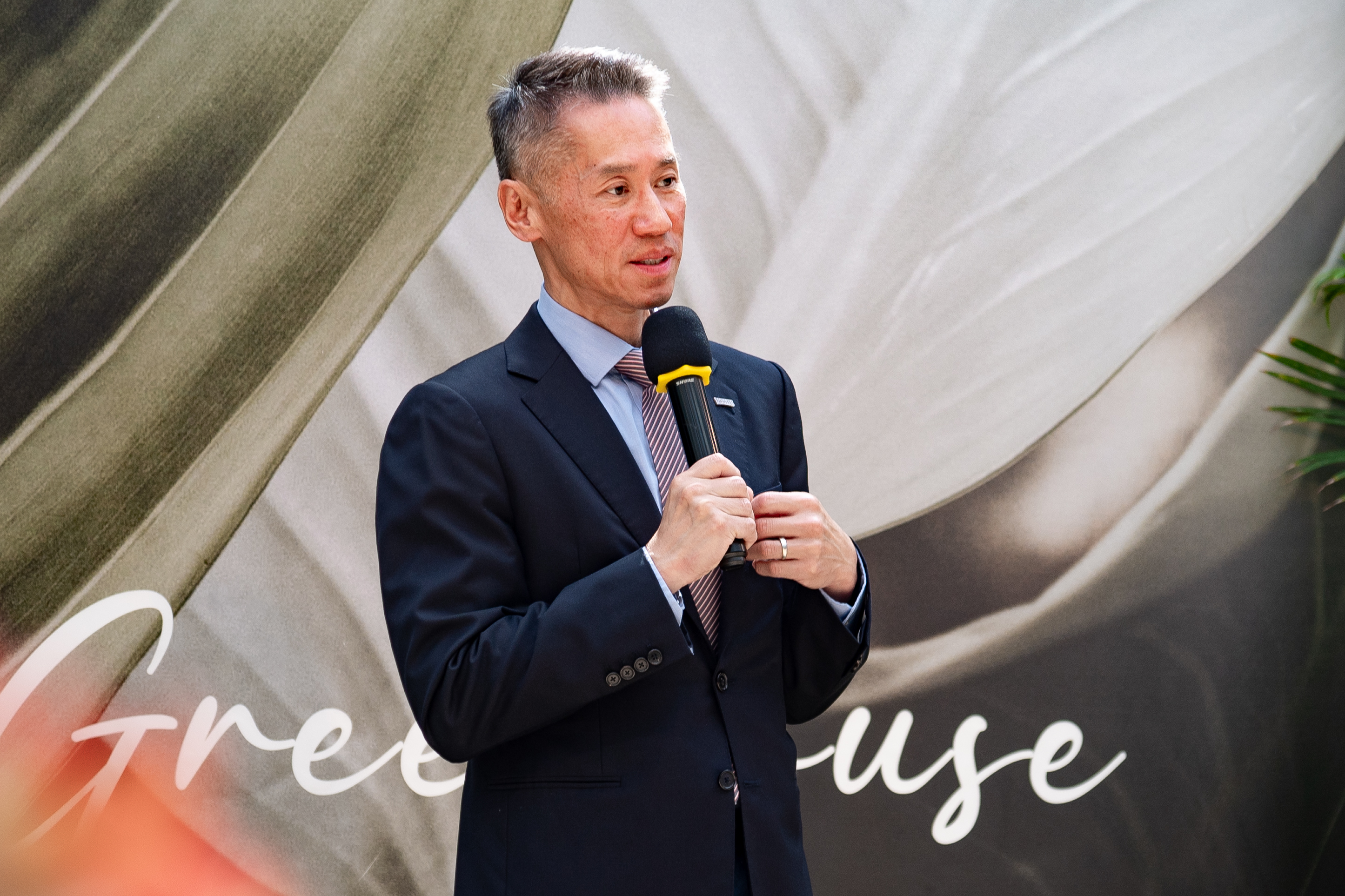
President W. John Kao (高為元) urges students to become wave-makers in the AI wave.

Yung-Hsien Wu (巫勇賢), Vice Dean of Academic Affairs, demonstrates how to use generative AI to segment classical Chinese texts quickly.
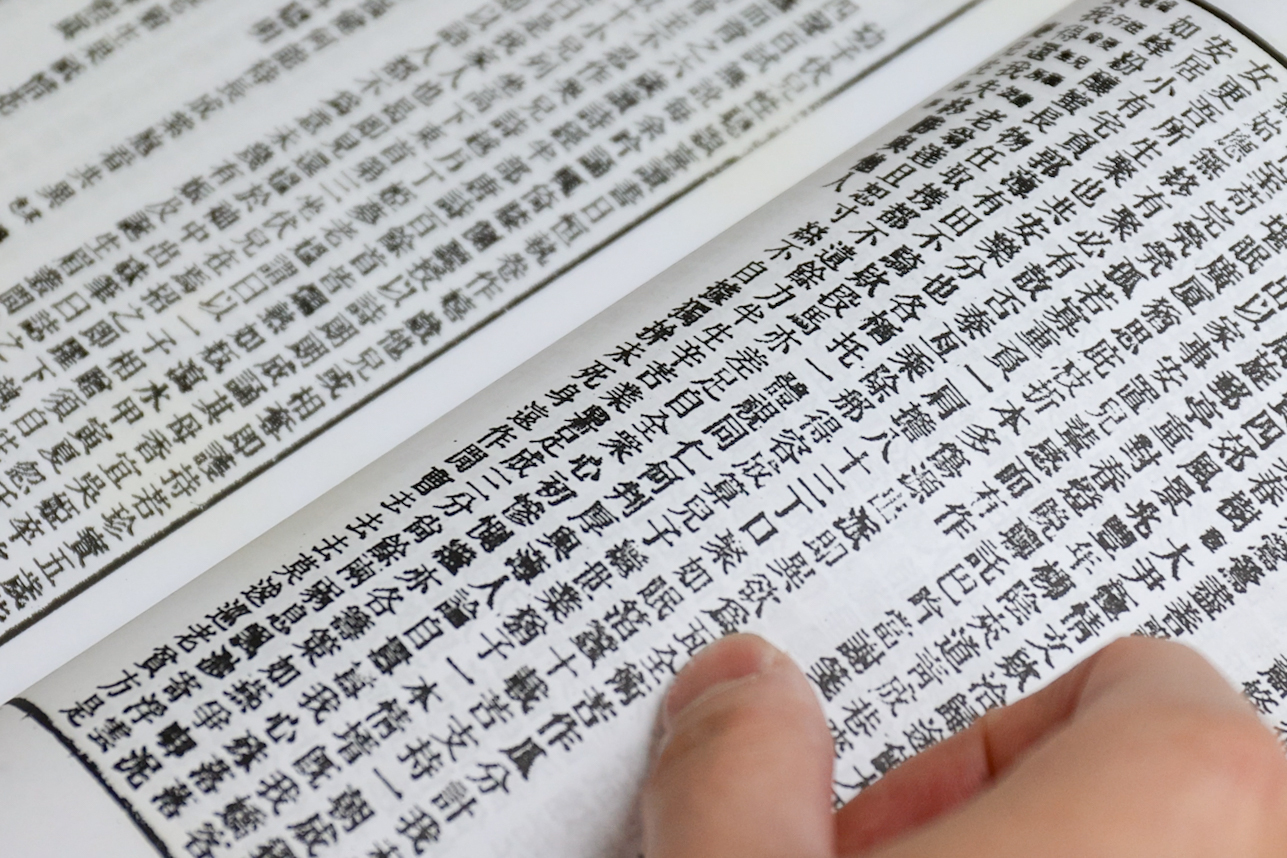
Dean Cho-Ying Li (李卓穎) of the College of Humanities and Social Sciences states that ChatGPT achieves an accuracy rate of up to 90% when segmenting unpunctuated classical Chinese texts.
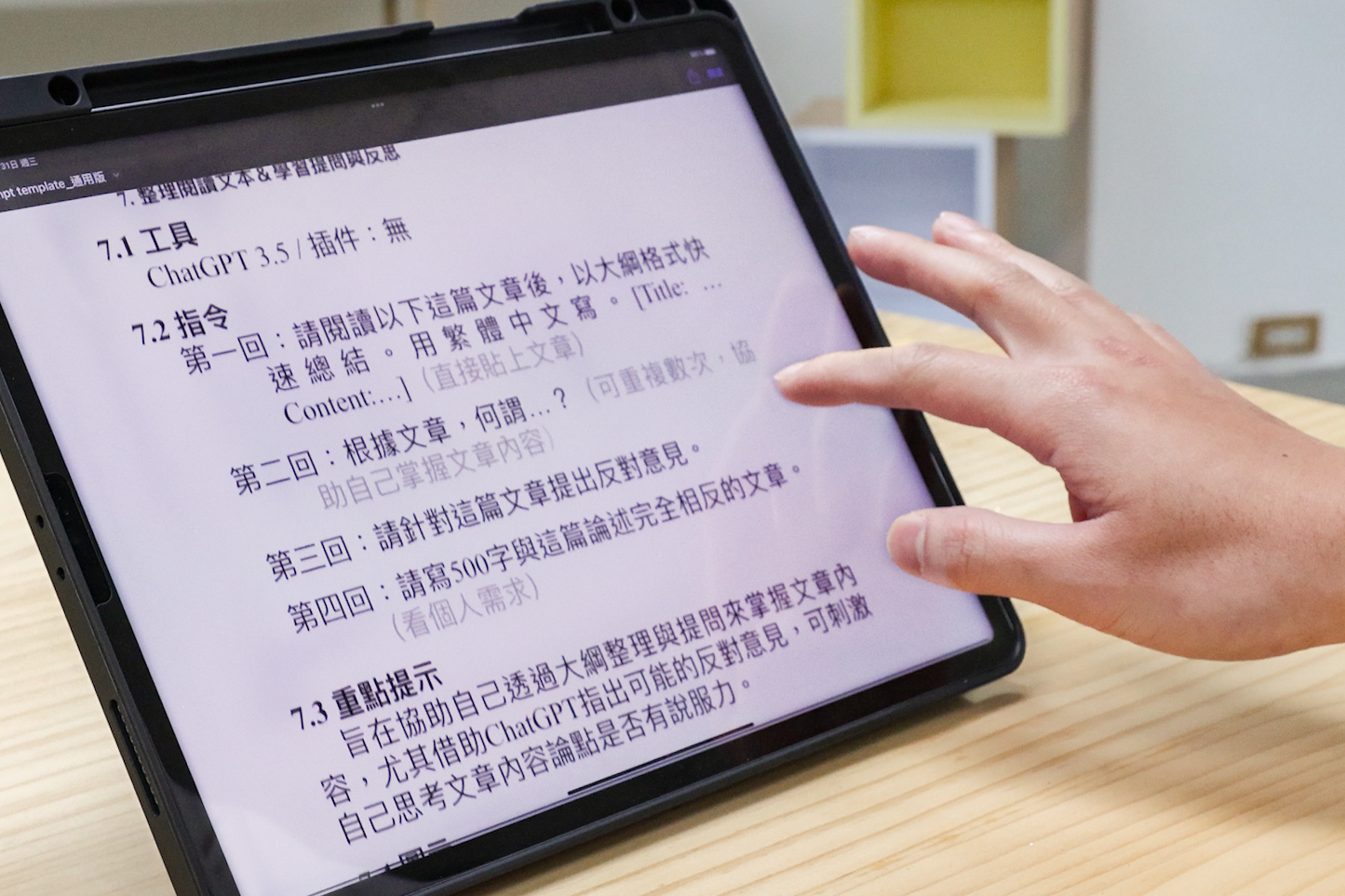
NTHU has developed "Generative AI Prompts for Humanities and Social Science Courses."
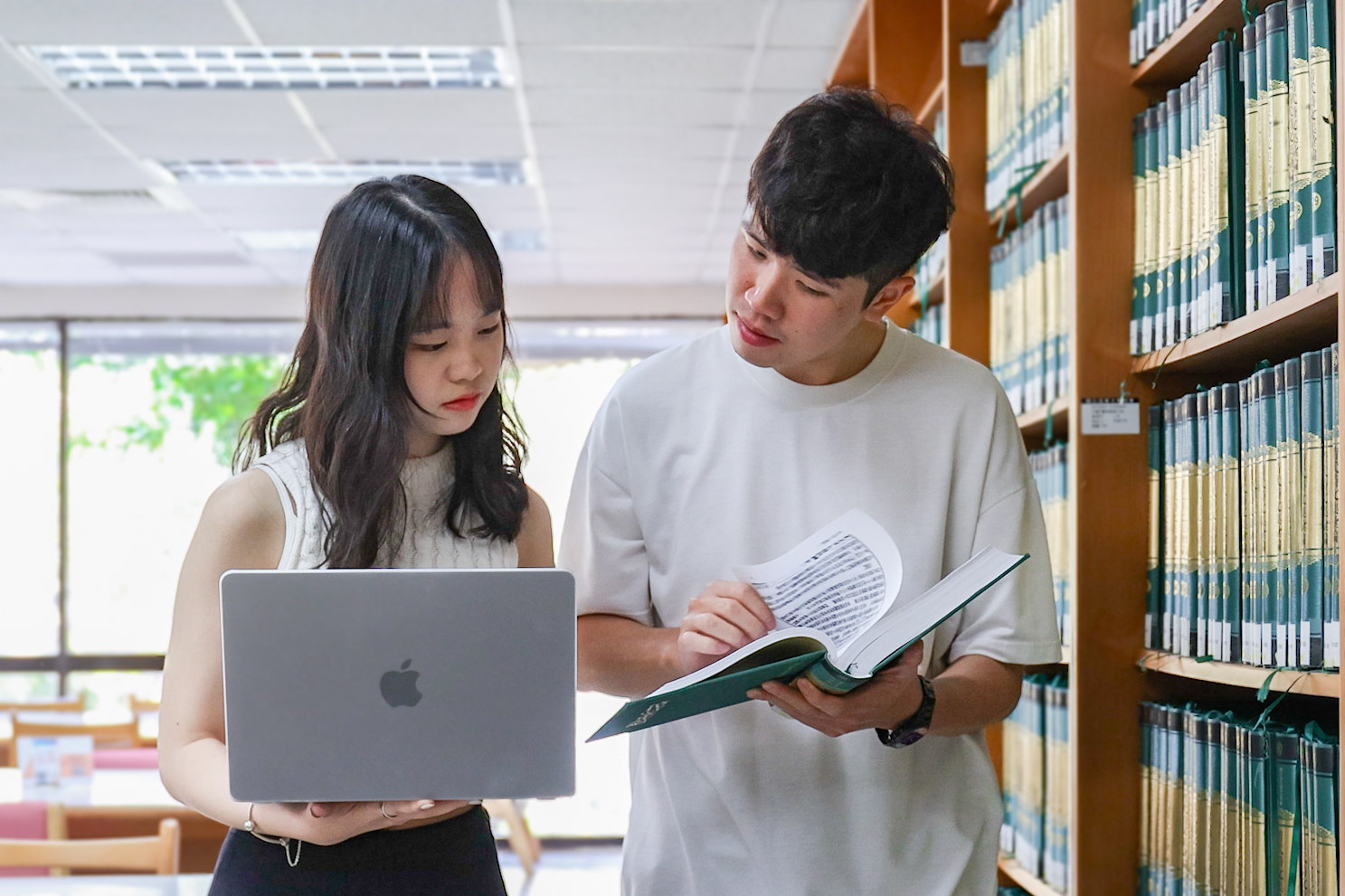
Students from the College of Humanities and Social Sciences apply ChatGPT to analyze historical materials and summarize key points.
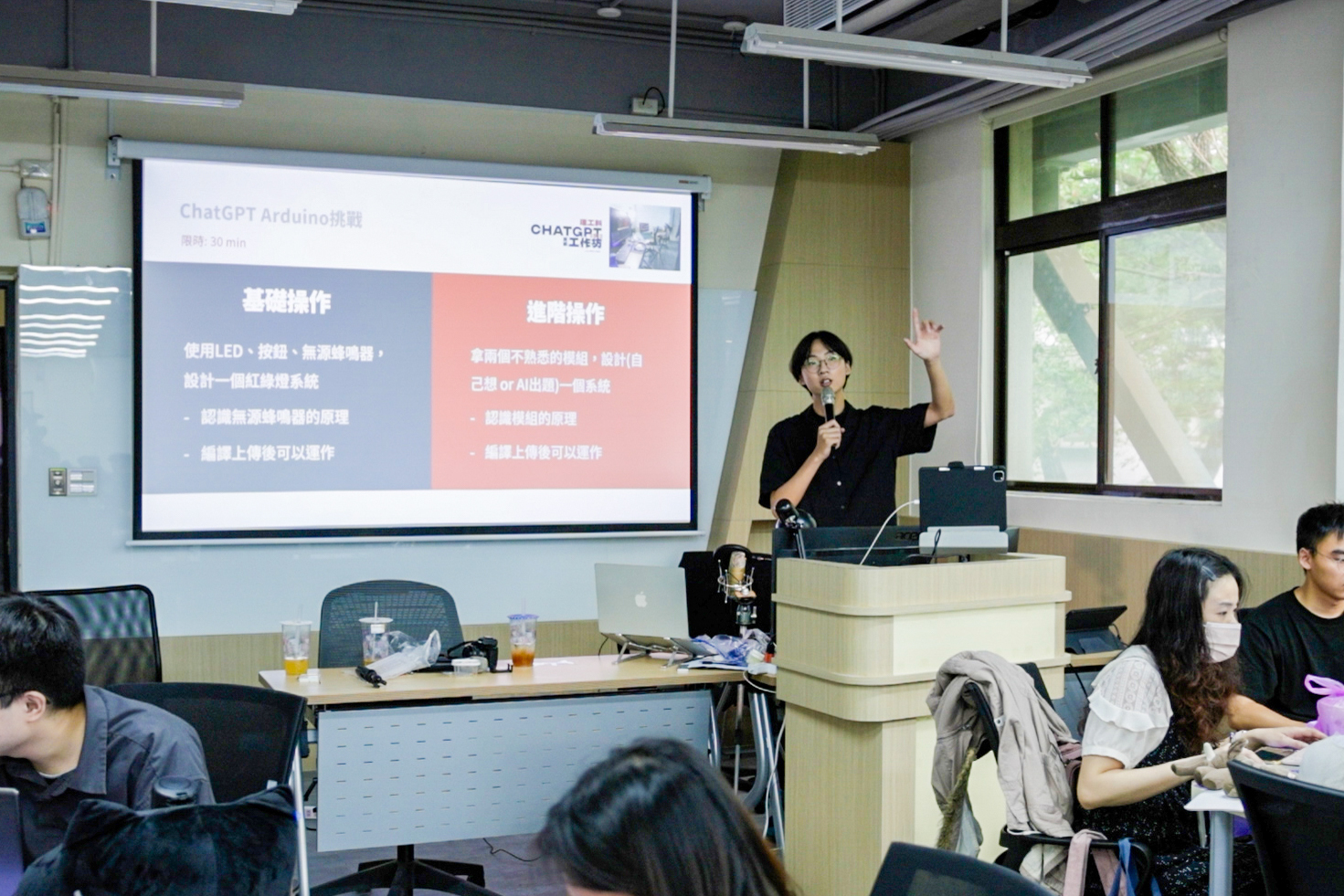
NTHU is the first university in Taiwan to establish a working group dedicated to generative AI and to offer AI workshops for all students.
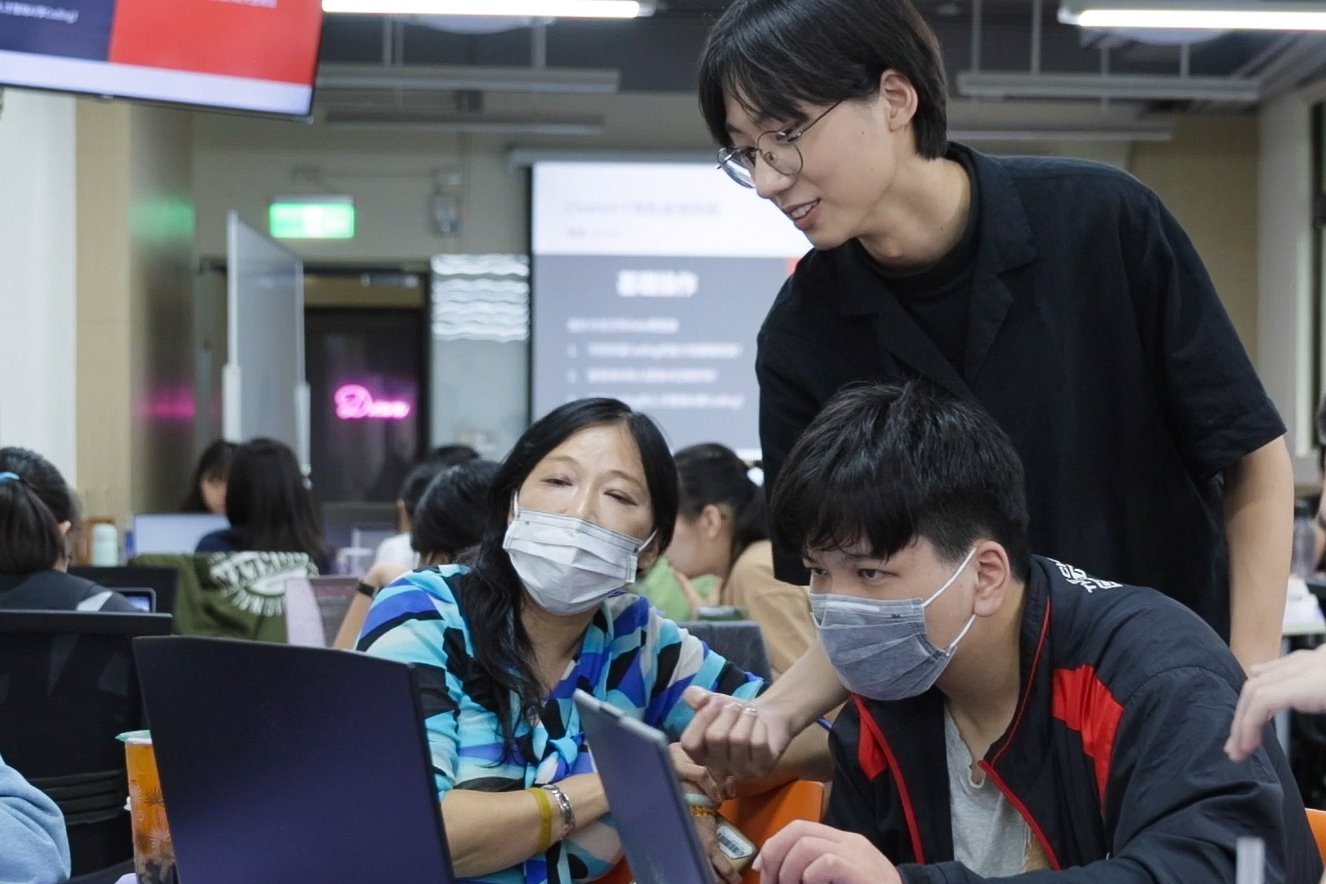
NTHU is the first university in Taiwan to establish a working group dedicated to generative AI and to offer AI workshops for all students.






